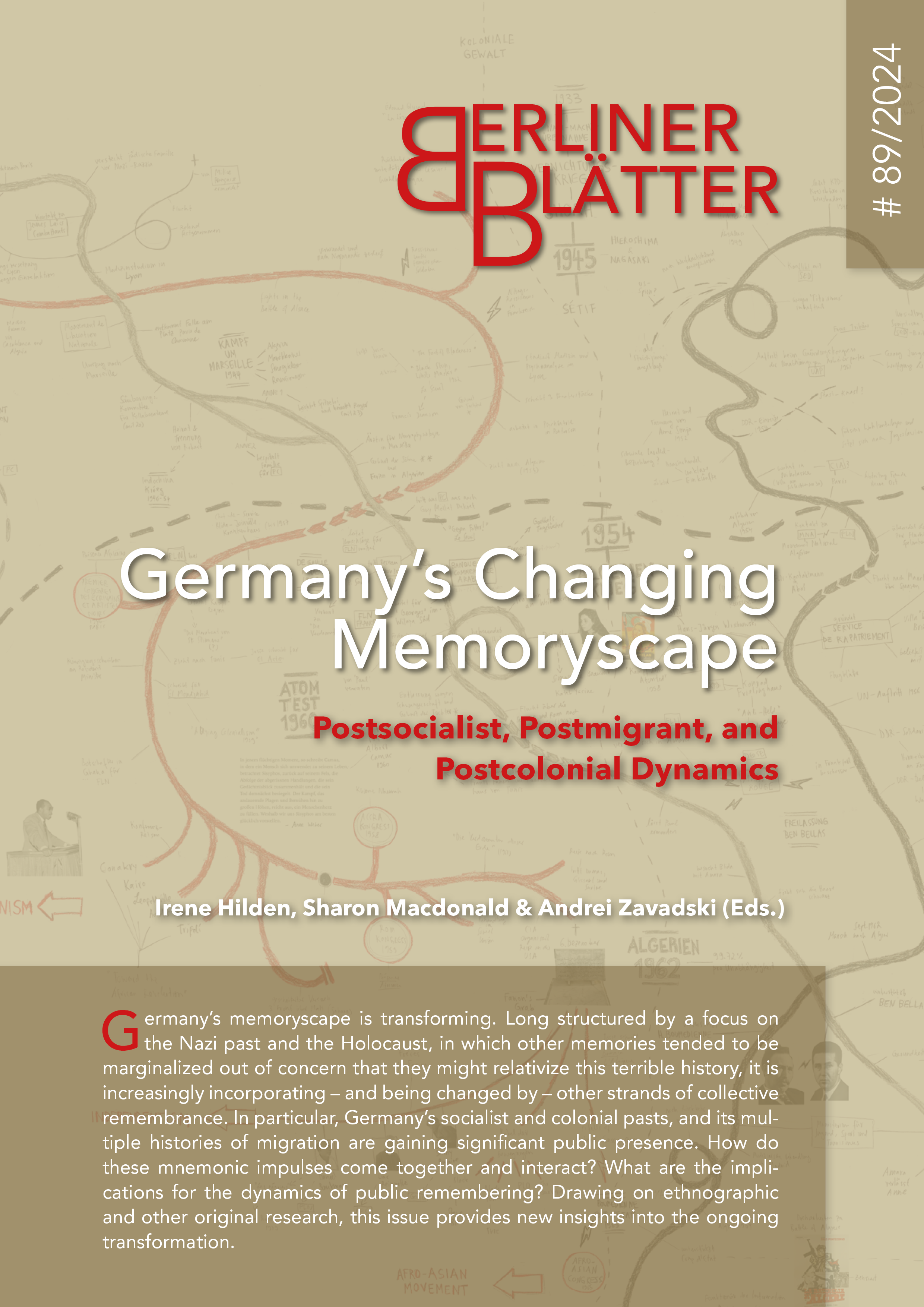Provenance-Centered Reckoning
A Memory Infrastructure for the Colonial Past?
DOI:
https://doi.org/10.18452/28741Keywords:
colonialism, Germany, material culture, memory, provenance, restitutionAbstract
What does it mean in Germany for colonial history to acquire the status of a new phase of coming to terms with the past alongside, and often in tension with, the memory of the National Socialist and East German pasts? This article explores this politics of memory through the changing role of material restitution at the governmental level. Governments play a central role in shaping and enabling (or disabling) what becomes part of a country’s public memory through state-sanctioned discourses and institutional structures, which we can call memory infrastructures. This article specifically inquires into how provenance research, once a relatively obscure art-historical method, has come to play a critical role within German memory culture. Through examining government discourses that shape the discursive field, I show how a memory infrastructure for colonial reckoning builds on the centrality of provenance research in reckoning with Nazi looted art and adapts it for confronting the colonial past. I suggest we might call this provenance-centered reckoning, and that it has begun to reshape the contours of reckoning with the past in Germany.
Downloads
Published
How to Cite
Issue
Section
License
Copyright (c) 2024 Berliner Blätter

This work is licensed under a Creative Commons Attribution-NonCommercial-ShareAlike 4.0 International License.








